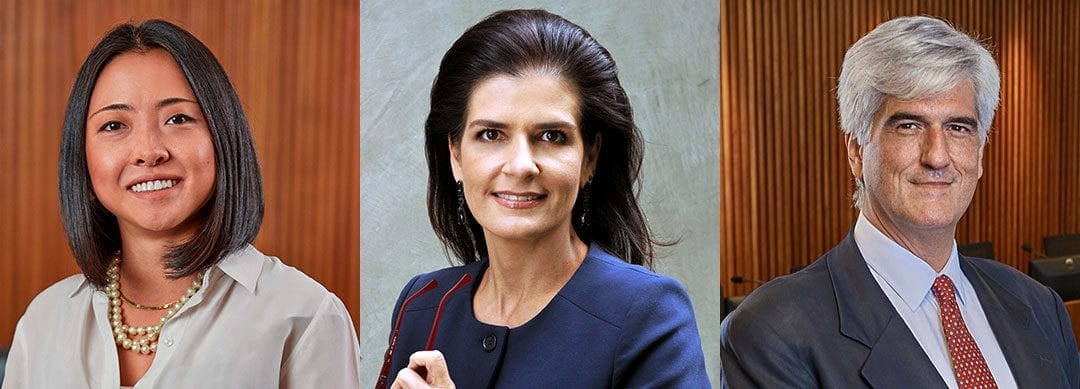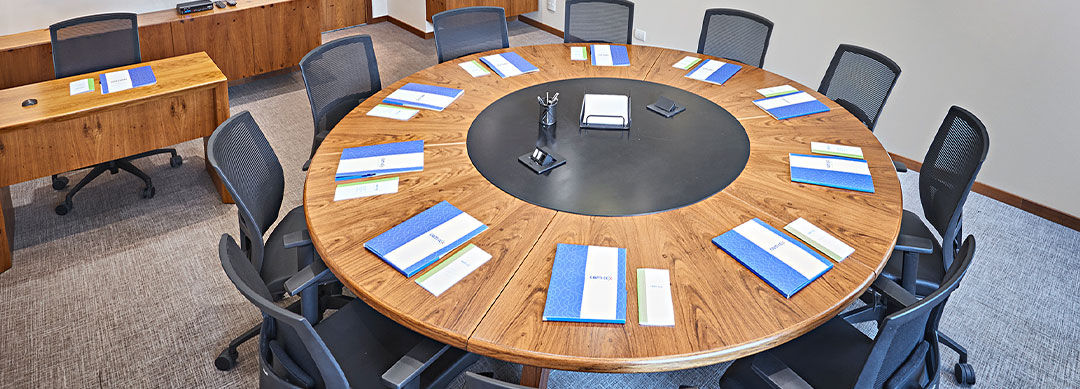The evolution of arbitration in Brazil depends on a strong brand abroad, where CAM-CCBC follows trends, establishes cooperation agreements and discloses the consolidation of the sector in the country. In May alone, representatives of the institution went to Portugal, Finland and Paraguay for meetings that strengthened connections with arbitration from several countries, including China, Brazil’s largest trading partner.
There is an expectation that the number of arbitration proceedings related to Chinese companies will grow in the coming years, increasing the country’s importance in discussions about alternative forms of business dispute resolution. This vision gains momentum with the Belt and Road initiative, which has been called the New Silk Road, in reference to the large network of Asian and European merchants that has been driving the region’s economy for over 2,000 years.
CAM-CCBC’s international roadmap
Portugal
During the workshop “Business among Portugal, Brazil and China: a practical analysis,” former CAM-CCBC chairman and current member of its Advisory Council Carlos Forbes participated in the panel “Legal Issues and Alternative Forms of Conflict Resolution involving Chinese parties.” The institution’s secretary-general, Patrícia Kobayashi, made a speech at the commemorative dinner following the meeting, held on May 28.
Another event was the 6th Portuguese-Brazilian Arbitration Days, a traditional partnership between CAM-CCBC and the Commercial Arbitration Center of the Portuguese Chamber of Commerce and Industry (CAC), with which the Brazilian institution has a cooperation agreement. The venue of the event alternates one year in Brazil and one year in Portugal, this year having been in Lisbon on May 31, with the theme “Rules on the efficient conduct of the Arbitration Process: The State of the Question.”
“Closer relations with the Portuguese arbitration community are fundamental to the CAM-CCBC internationalization process and will certainly guarantee short- and long-term results,” said Patrícia.
In the same trip, the secretary-general established a network with the Brazilian ambassador in Portugal, Luis Alberto Machado; participated in an event of the Sociocultural Institute Brazil/China (Ibrachina) and SRS Advogados; talked about arbitration in Lusophone countries and Africa; besides having visited the Commercial Arbitration Center of the Lisbon Chamber of Commerce.
Finland
Before Portugal, CAM-CCBC representatives went to Helsinki. In the Finnish capital, Patrícia Kobayashi represented the Center at the general meeting of the International Federation of Commercial Arbitration Institutions (IFCAI), of which CAM-CCBC is a member. “IFCAI meetings are always very fruitful since they are dedicated to the analysis of topics pertinent to the institutions’ performance,” said Patrícia.
At the IFCAI Biennial Conference, on May 23, Carlos Forbes participated in the panel “Round Table Discussion: Conflict Diagnosis, Conflict Resolution Strategies and Versatile Use of ADR Mechanisms – How to Use These Tools for Strategic and Effective Conflict Resolution?.”
Paraguay
The Latin American Arbitration Conference (Portuguese acronym CLA) stands out for its significant numbers, bringing together more than 30 speakers and 1,500 participants from all around the world. The event alternates its headquarters annually and has happened in cities such as Medellin, Buenos Aires, Punta Cana, Curitiba, among others. The eleventh edition was held in Asunción, Paraguay, and had the participation of three CAM-CCBC representatives.
CAM-CCBC Vice President Silvia Rodrigues Pachikoski was on the panel “What must arbitrators do when facing business corruption?”. Advisory Board members Adriana Braghetta and João Bosco Lee participated respectively in the panels “How technology is impacting arbitration” and “Arbitration and private international law”.





